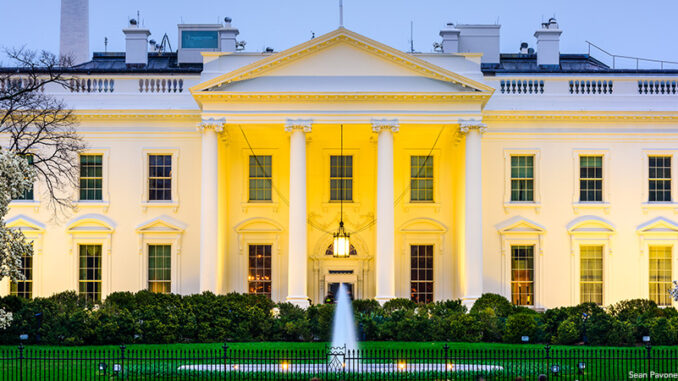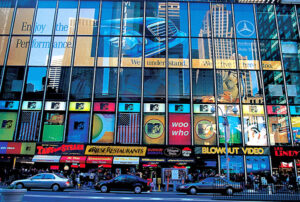
White House Transition
Regardless of who wins the upcoming general election, there will be a new occupant of the White House come January. Having a fully-functioning government at all times is crucial to our national security. This requires a “seamless transfer of power” from administration to administration. Made up of 4,000 senior executives, an annual budget of $4 trillion, and only 72 days (the time between the election and the inauguration), this is no easy feat.
Because the president is not officially declared until the Electoral College vote in December, Congress passed the Presidential Transition Act of 1963. This law authorized the new administration a budget and the right to occupy space and communication services before moving in. President Obama reportedly has a team in place, removed from both the “chaos and rancor of the campaign” as well as the daily pressures of the White House. He has publicly praised the George W. Bush administration for a “well-executed handover.” This is in contrast to those of the past, generally thought of as poorly planned.
Dig Deeper For fun, watch this SNL sketch from 1989, a spoof about Nancy Reagan’s difficulty in letting go after the George H.W. Bush family moved in. Then do some research on other presidential transfers. Write a paragraph on some of the specific challenges (and/or surprises) you uncover.
Applicants for Dallas Police Force Spikes
On July 7, a sniper specifically targeting police, killed five officers and injured nine others in Dallas, Texas. Over the next two weeks, the city’s police department received more than 450 applications. This is three times more than they get in an average month. Before the fatal attack on officers, the department had suffered criticism due to poor management and low pay, with at least 50 having left in June alone for higher-paying positions in other cities.
Some of the applicants reportedly said they wanted to help police in general, while others specifically wanted to help affect change in areas where tensions between police and African Americans is greatest. In one year, police officer murders have increased by eight percent throughout the United States. New York City experienced a similar surge in NYPD (and city fire department) applicants following the terrorist attacks of 9/11. Since then, the nation’s largest police department has undergone a major transformation, with many officers trained in counterterrorism measures that have successfully thwarted a number of attacks around the city in the early 2000s.
Dig Deeper Take a closer look at your local police force. Ask if it has experienced any change in the number of applicants in the past few months. If so, what strategies (if any) has leadership put in to place to respond?
Moving Inward
For the past few decades, it was a growing trend for companies to move their headquarters to the suburbs, where they created sprawling campuses, complete with wooded grounds and vast parking lots. Now, it appears that the trend is reversing itself. A combination of tax incentives and greater gentrification are some of the reasons. Attracting Millennials, who are becoming more and more drawn to both urban living and want to live closer to where they work and play, is another significant factor accounting for the sea change.
McDonalds is moving from the Chicago suburbs to downtown and General Electric announced it is relocating its top executive team from a 70-acre corporate office park to the heart of Boston. It’s not just the big cities; places of more modest skylines—such as Milwaukee, Wisconsin; Wilmington, Delaware; and Cincinnati, Ohio—are also following suit. Developing space in a thriving metropolis also provides opportunities for valuable retail rental opportunities in areas with busy foot traffic.
What Do You Think? When you think ahead to “what comes next” after high school and/or college, where do you imagine living and working? Write a few sentences about what that looks like, noting any lifestyle, conveniences or any other requirements important to you.
We Still Want Our MTV

Thirty-five years ago, a brand new cable channel was launched to little fanfare. Within months, however, scores of teens all over the country (or rather, the handful of cities that had it) couldn’t get enough of the new entertainment. A few years later, MTV (Music Television) had become a cultural juggernaut. As music and trends changed over the decades, so did its programming. The videos evolved from quirky, low-budget documents of bands performing, to epic-scale productions (such as Michael Jackson’s original music video to his song “Thriller”). In the 90s, the channel switched from a radio station-like format of one video following another (with no commercials) to coordinated blocks of a particular genre (like Yo! MTV Raps, Headbangers Ball, and 120 Minutes). In the 2000s, scripted shows and reality shows became the norm. What didn’t change was the influence it had on pop culture.
To coincide with the anniversary of the channel’s launch, the network recently started MTV Classic. While this new channel still plays videos in the early morning hours, much of the programming will be dedicated to shows from the 1990s. Live-audience shows such as Unplugged and Total Request Live, reality shows such as The Real World and Laguna Beach, and animated series like Daria and Beavis & Butt-head will air.
